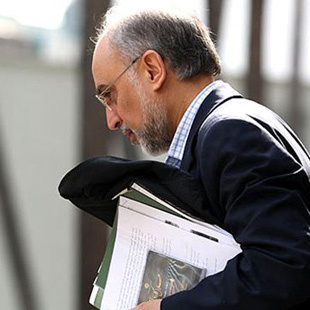The Preconditions for Salehi’s Visit to Saudi Arabia

 IRD: Saudi officials have expressed their desire for our foreign minister to visit Riyadh. Some members of parliament have opposed a visit, and taken a position in regard to Salehi’s proposed trip before our diplomatic apparatus has even announced a decision on it. Even though I believe the visits of Iranian officials during the past six years to Saudi Arabia were aimless and without any results, this visit, however, could lower the tensions in the region and help solve the crisis in Bahrain. This opinion comes from observing the regional conditions in the past four months that have been as follows:
IRD: Saudi officials have expressed their desire for our foreign minister to visit Riyadh. Some members of parliament have opposed a visit, and taken a position in regard to Salehi’s proposed trip before our diplomatic apparatus has even announced a decision on it. Even though I believe the visits of Iranian officials during the past six years to Saudi Arabia were aimless and without any results, this visit, however, could lower the tensions in the region and help solve the crisis in Bahrain. This opinion comes from observing the regional conditions in the past four months that have been as follows:- Saudi forces entered Bahrain on March 14th and put an end to the Bahraini revolution through their intervention. This caused unprecedented tensions between Iran, Saudi Arabia, and the PGCC.
- There were two different trends in responding to the demands of the Bahraini people. The Prime minister of Bahrain demanded a crackdown on the people in support of the Saudis; while the king and the crown prince called for negotiating with the opposition. The Americans were also in favor of negotiation with the opposition. However, they preferred to keep silent because of their interests in regards to the intervention of the PGCC.
- After the entrance of Saudi forces into Bahrain, the country went into a state of security for three months. But the security and military situation in Bahrain paralyzed political, social, and economic life. Bahrain is not an oil-rich country and its economy is dependent on international banks and tourism. These activities are in recession in the current situation. Government repression has not been able to put an end to the protests of the people and protesters take advantage of every opportunity to insist on their demands.
- The Bahraini king has decided to end the state of emergency 15 days before the three months period. The Saudis are to be stationed in the “Al-Refaa” region, which is distant from Shiite regions, from the beginning of June.
- Saudi Arabia tried to justify its military intervention in Bahrain by the support of the PGCC; therefore it pitted the political and propagandistic potential of the PGCC against Iran. Propaganda and a media war between the two sides was in favor of the Saudis, and other countries like Kuwait and the UAE also joined the PGCC side. Iran has changed its diplomacy in the past two weeks and with Salehi’s visits to Qatar, Kuwait, the UAE, and Oman, it has been able to create a gap on the side of the Saudis. Kuwait announced that it will re-send its ambassador to Tehran. Bahrain’s foreign minister also announced that Iran’s ambassador could return to Manama. However, there was no need for such a comment because our ambassador had temporarily left Bahrain and was not dismissed. But in terms of diplomacy this comment is a positive step. Salehi’s visits to these four countries and their results prove that diplomacy should not be forgotten and the best way to help the Bahraini people is by using all the potentials we have, including diplomacy. The role of the diplomatic apparatus is not simply observing developments and reacting emotionally to them.
- The main opposition in Bahrain is not demanding the fall of the Al-Khalifa monarchy. The maximum demand it has is to have a constitutional monarchy. The crown prince of Bahrain and the opposition were about to reach an agreement before the military intervention of the Saudis.
- It was obvious from the beginning that the entrance of Saudi military forces into Bahrain was a failed policy. However, the Americans and the Bahraini government decided to keep silent in response to the aggressive and angry diplomacy of the Saudis so that the passage of time would prove this decision wrong. With the failure of the Saudis in Yemen, their diplomacy is in a weaker position, more than ever.
- Salehi’s visit in such a situation could be very valuable if it leads to the exit of Saudi forces from Bahrain and re-starts the negotiations between the opposition and the crown prince. Our diplomatic apparatus should have the courage to take the right decisions, and instead of backing off because of the criticism of some members of parliament, they should use their expertise to persuade them of their correct actions. They should also make sure that this trip is a fruitful one and achieves tangible results. The Bahraini king has announced that the national negotiations on reform will start on the first day of July. Saudi Arabia’s welcoming mood for Salehi means that they have accepted the failure of a military crackdown on the people and also accepted Iran’s role in the region. Right now the situation is in favor of diplomatic solutions. And the absence of Iran from the diplomatic scene seems illogical.

